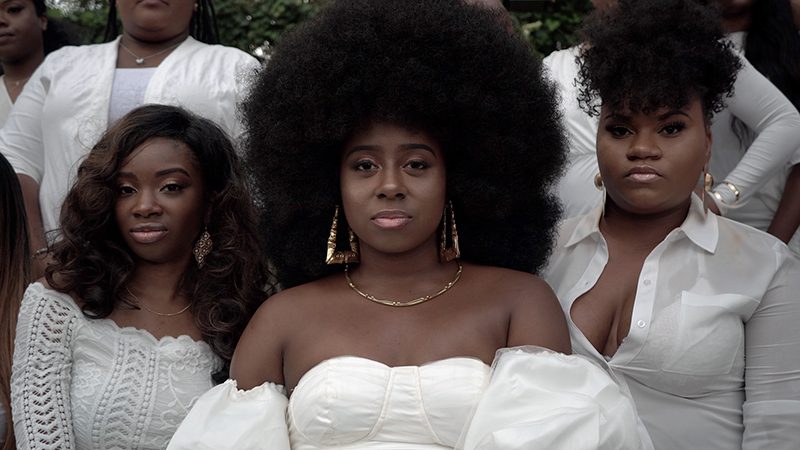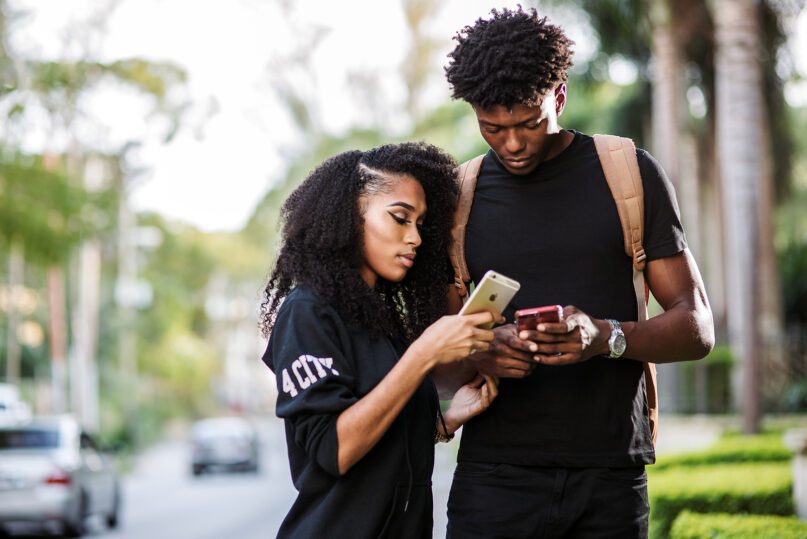(RNS) — I don’t hate white people. But I did, years ago, for 15 minutes during a church service. The Lord’s Supper, no less.
It was during the first high tide of the Black Lives Matter movement, but years before George Floyd, when most protesters in the streets were Black, trying our damnedest to make America confess that the deaths of Black civilians in police custody were rooted in the racial violence from which this nation sprouted.
White people often insisted in reply that their hands were clean of Black blood that watered these roots, saying things like “No Black person alive has ever been a slave” or “Why should I feel responsible for the crimes of my ancestors?”
They were innocent, they demanded. Didn’t I know that? White and innocence have been tethered for as long as anyone can remember.
RELATED: Moving lightly through this world: Reflections on the weight of white Christian innocence
In those days, I still had a little hope that when I attended church, some preacher would say something that sounded like good news to the persecuted. My mustard seed of hope usually fell on thorny soil.
I don’t remember what was preached that day. It doesn’t matter. What I knew in that moment was that nothing said or sung in that service had anything to do with the hell Black people catch Monday to Saturday. The white people to my left and right and center had already absolved themselves of concern.
“What could it possibly mean to be innocent in a society built and maintained by cruelty,” I asked myself.
In that moment, I hated them for their innocence, an innocence that absolved them of awareness or empathy. An innocence that justified the dismissal of millions of persecuted people.
Anyone close to me at that time knows how hard I was on white people. I was full of truths too urgent to be spoken gently. No one whispers “fire” to the crowd in a burning theater. I felt it my calling to convey the pain of being Black in an anti-Black world, no matter how uncomfortable or offensive my words. “Black lives,” I asserted often, “are more important than white people’s feelings.”
I was often counseled by many to take a more temperate tone: “You’ll catch more flies with honey than you will with vinegar.” I called bullocks on that. Not only was it untrue (you’ll catch more flies with dog droppings than honey), I insisted there was something valuable about white people encountering Black rage. White people had to learn to hold space for the rage of Black people without policing their tone.
In his 1994 book “Representations of the Intellectual,” Edward Said argued that intellectual integrity demands us to be consistent in the principles we use to analyze society and to speak truth. He gives as an example Alexis de Tocqueville’s criticism of American abuses of Native and Black peoples, while excusing the same type violence about the French colonization of Algeria. “Massacres leave him unmoved,” Said writes. “Muslims, he says, belong to an inferior religion and must be disciplined.”
I’ve tried to live by Said’s principle. What is wrong doesn’t become right when it’s done by your country, your class, your social group, your team. What I expect from the group that persecutes me, I should expect of myself when I represent the persecutors.

Photo by Zach Vessels/Unsplash/Creative Commons
I recently encountered the rage of some Black women online — not for any direct action of my own but for the kind of indirect harm that once made me angry at white people. Days after the publication of “The Rise of Lonely, Single Men,” a Psychology Today article explaining that new, healthier standards for relationships are costing some men dating opportunities, therapist Shabree Rawls posted a TikTok video strongly urging Black men to get therapy to expand our “emotional vocabulary.”
Apart from the controversy over her tone and her calling men “dusty bitches,” the conversations that ensued online further urged that men’s emotional ineptitude be addressed.
Some Black men felt offended and defensive. Some Black women defended Black men. Other Black men affirmed the critiques. Other Black women criticized other Black women for defending Black men. Other Black men criticized other Black men for affirming the critiques. But the sentiment that caught my attention was that of a number of Black women who had given up on us.
One commenter tweeted: “Black women, stop trying to help & save. Just stay out of black men’s business. Separate completely & let them tend to themselves.”
An old tweet resurfaced from a social media influencer, a Black woman, that read: “After thousands of comments from nigcels objectifying and villainizing me I’ve come to the conclusion that I no longer have the capacity to have empathy for cis straight Black men. Good luck on your endeavors as bullet bags.”
It’s not easy for me to read those words, but it doesn’t mean they shouldn’t be said. They have to be said. More importantly, they have to be heard. If I take Said’s integrity principle seriously — and I do — I have to treat the rage of Black women with the same respect I demand white people treat Black rage.
To be Black and male in this society is a complex position, often harmed by whiteness, but also often harmful to Black women and Black LGBTQ people. We can be victims and victimizers. One can be oppressed by one group and privileged in relation to another group.
Black and male, I’ve come to the conclusion that it’s critical to dodge the temptation to use the targets society places on us as shields. Just as a white woman would be wrong to assert — as they often do — that because they endure patriarchal oppression, they’re immune to perpetuating anti-Black oppression, Black men would be wrong to assume we can’t perpetuate patriarchal oppression in certain contexts because we suffer anti-Black oppression.
If we fail to listen to other voices with the same empathy we’d want for ourselves, it’s completely understandable for persecuted people to lose faith, or interest, in the possibility that their persecutors will ever change or grow, especially when they’ve tried their best to love and help their harmdoers, often at great cost to themselves.
If we listen, we also discover the path to transformations for ourselves and, by extension, society at large.
RELATED: In ‘Truth’s Table’ book, women podcasters cast vision for future of Black church
If we listen, we’ll discover that these voices are not trying to tell us we are bad, but that they’re hurting because we’re hurting. They’re telling us we need to heal so we can all be free. And the message may not always land easy for us, but that doesn’t make them wrong.
To be sure, some double standards are legitimate. For example, I’ll die on the hill that white people’s use of racist myths to segregate from Black people is categorically different from Black people wanting to separate from white people because of anti-Black violence. But we must be careful not to confuse categorical differences with moving the goalposts.
At the end of the day, there are certain habits of privileged people in an oppressive society we must be careful to avoid, lest we become what we claim to hate.






